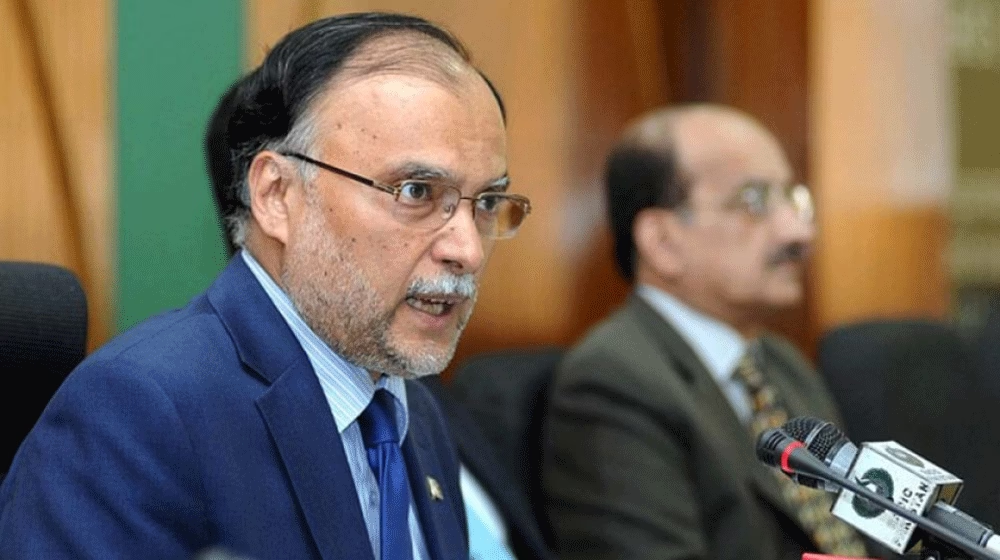Islamabad: As part of its agreement with the International Monetary Fund (IMF), Pakistan’s Federal Board of Revenue (FBR) faces the challenge of collecting Rs 25 billion by December 2024 through the Trader-Friendly Scheme (TDS). However, with only Rs 1.3 million (13 lakh) collected so far, the tax collection body finds itself far behind its ambitious target, raising concerns over the scheme’s viability and the country’s commitment to meeting its fiscal goals under the IMF program.
The Trader-Friendly Scheme (TDS) was designed to enhance tax revenues by encouraging traders to register and contribute to the national exchequer. Despite these efforts, the response from traders has been minimal, leaving the FBR in a difficult position as it grapples with the enormous shortfall. This lack of engagement has forced the tax authorities to consider additional measures to compel compliance and achieve the desired results by the deadline.
The IMF Agreement and Fiscal Challenges
Under the ongoing IMF program, Pakistan is required to meet stringent fiscal targets, which include broadening the tax base and increasing revenue collection. The FBR, which is responsible for generating a significant portion of these revenues, was tasked with collecting Rs 25 billion from traders by the end of December 2024. The TDS was introduced as a means to achieve this target, with the hope of bringing more traders into the formal tax system.
However, despite the introduction of the TDS, the FBR has struggled to gain traction with the trader community. As of now, only Rs 1.3 million has been collected, a fraction of the Rs 25 billion goal. To make matters worse, only 550 out of approximately 80,000 registered retailers have contributed to the national exchequer through the scheme, further underscoring the challenges faced by the tax authorities in implementing the program.
Potential Ordinance to Compel Compliance
In response to the slow progress, the FBR has been working on additional measures to ensure compliance. During a meeting with IMF officials, the FBR shared its transformation plan, which included the possibility of introducing an ordinance to enforce tax collection. The proposed ordinance, if implemented, would introduce strict measures such as freezing bank accounts, banning the purchase of plots, and restricting the acquisition of new vehicles for non-compliant traders.
According to sources within the FBR, the ordinance has already been prepared and is awaiting approval from the IMF. Once cleared, the ordinance will be enforced to ensure that traders who continue to evade taxes face legal consequences. This move reflects the growing frustration within the government as it seeks to meet its fiscal targets while also balancing the demands of the IMF program.
Deadlock Between FBR and Retailers
One of the key obstacles to the success of the TDS has been the ongoing deadlock between the FBR and the trader community. Retailers, particularly those operating in high-end markets, have been reluctant to participate in the scheme, citing concerns over the transparency and fairness of the tax system. As a result, many traders have opted to remain outside the formal tax net, despite the FBR’s efforts to incentivize them.
Earlier, FBR Chairman Asim Ahmad had stated that the Trader-Friendly Scheme would not be reintroduced under any circumstances, emphasizing the need for more effective tax collection mechanisms. Despite this stance, the lack of progress has prompted the FBR to reconsider its strategy, with officials now pushing for more stringent measures to ensure compliance.
IMF’s Response and Proposed Changes to TDS
The FBR has shared its proposed changes to the TDS with the IMF, though no formal response has been received as of yet. According to top government sources, policymakers are advocating for targeting wholesale vendors and retailers in affluent areas, as they believe this segment of the market has the greatest potential for increasing tax revenue. However, the IMF has yet to approve these changes, leaving the FBR in a state of uncertainty as it awaits guidance on how to proceed.
This lack of clarity from the IMF has further complicated the FBR’s efforts to meet its targets. While the government remains committed to the IMF program and its fiscal responsibilities, the failure of the TDS thus far has exposed deeper issues within the country’s tax collection system. Until these issues are addressed, it is unlikely that the FBR will be able to meet its Rs 25 billion target without significant changes to its approach.
A Broader Issue of Tax Compliance
The challenges faced by the FBR in implementing the TDS are indicative of a broader issue of tax compliance in Pakistan. With one of the lowest tax-to-GDP ratios in the world, the country has long struggled to bring its informal economy into the tax net. Despite numerous reforms and initiatives, the majority of Pakistan’s businesses and traders continue to operate outside the formal tax system, depriving the government of much-needed revenue.
The failure of the TDS highlights the need for a more comprehensive approach to tax reform, one that goes beyond simply introducing new schemes and incentives. To truly increase tax compliance, the government must address the underlying mistrust between taxpayers and the tax authorities, improve transparency, and create a system that is perceived as fair and equitable by all stakeholders.
Looking Ahead
As the deadline for meeting the Rs 25 billion target approaches, the FBR faces mounting pressure to deliver results. The potential introduction of an ordinance to compel compliance may help boost revenues in the short term, but it remains to be seen whether this will be enough to meet the IMF’s expectations. Ultimately, the success of the TDS and other tax initiatives will depend on the FBR’s ability to build trust with the trader community and create a more inclusive and transparent tax system.
For now, the FBR must work quickly to implement the necessary changes and engage with the IMF to secure approval for its proposed measures. Whether or not these efforts will be enough to salvage the TDS remains to be seen, but one thing is clear: Pakistan’s fiscal future depends on its ability to broaden its tax base and increase revenues in the months and years to come.



